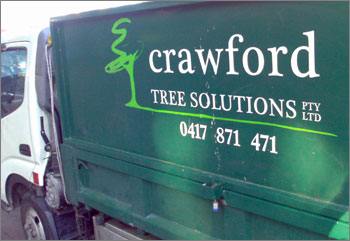 Imagine this. You’ve just won a contract worth a billion dollars against stiff competition. How do you feel? Thrilled? At least, you know, a little bit pleased with yourself? Apparently not.
Imagine this. You’ve just won a contract worth a billion dollars against stiff competition. How do you feel? Thrilled? At least, you know, a little bit pleased with yourself? Apparently not.
“The Commonwealth Bank is embarking on a significant transformation project and we are delighted to be a key partner. Through Telstra’s own transformation we have invested in world class networks and services and alliances with leading partners. We look forward to bringing these advances to the partnership to offer real benefits to the group, its customers and staff,” David Thodey [pictured left], Telstra’s group managing director enterprise and government said in a statement.
What bullshit!
Australia’s biggest telco Telstra just signed a 10-year deal to provide telecommunications and managed services to Australia’s biggest bank, the Commonwealth. The deal’s worth $100M a year. There’s bound to be some fascinating details which make this all very special. If nothing else, it’s worth a shitload of money — and that’s something to get excited about.
That paragraph of meaningless management wafflespeak is the reaction? There’s not a single fucking concrete noun in the damn thing!
Got any words of thanks for the hard-working staff who helped you win this deal, David? No.
Things aren’t any better on the Commonwealth’s side.
“Our arrangement with Telstra is a partnership which is directly focused on customer satisfaction through well-defined shared goals, commitments and business outcomes. This is the first time we have struck a deal of this kind,” the Commonwealth Bank’s CIO Michael Harte [pictured right] said in a statement.
Well of course the deal is focussed on customer satisfaction! You don’t set up deals to create dissatisfied customers, do you? Why not tell us why Telstra won? I think they’d have liked that.
Now I blame neither David Thodey nor Michael Harte for this idiotic language. I assume they have highly-paid corporate communications specialists to handle this sort of thing.
Those people should be shot.
This is probably one of the biggest business deals around this week, yet they’ve managed to drain every possible speck of colour and life from it — in the process portraying their bosses as drab, emotionless cyphers.
Read the full Telstra media release [PDF] for yourself. It’s pathetic. And the Commonwealth hasn’t even managed to get its version online yet.
Dear PR Droids, if you can’t manage to communicate the excitement of a billion-dollar deal between two of the nation’s most important corporations, then piss off out of it and clear your desk for someone who can.

